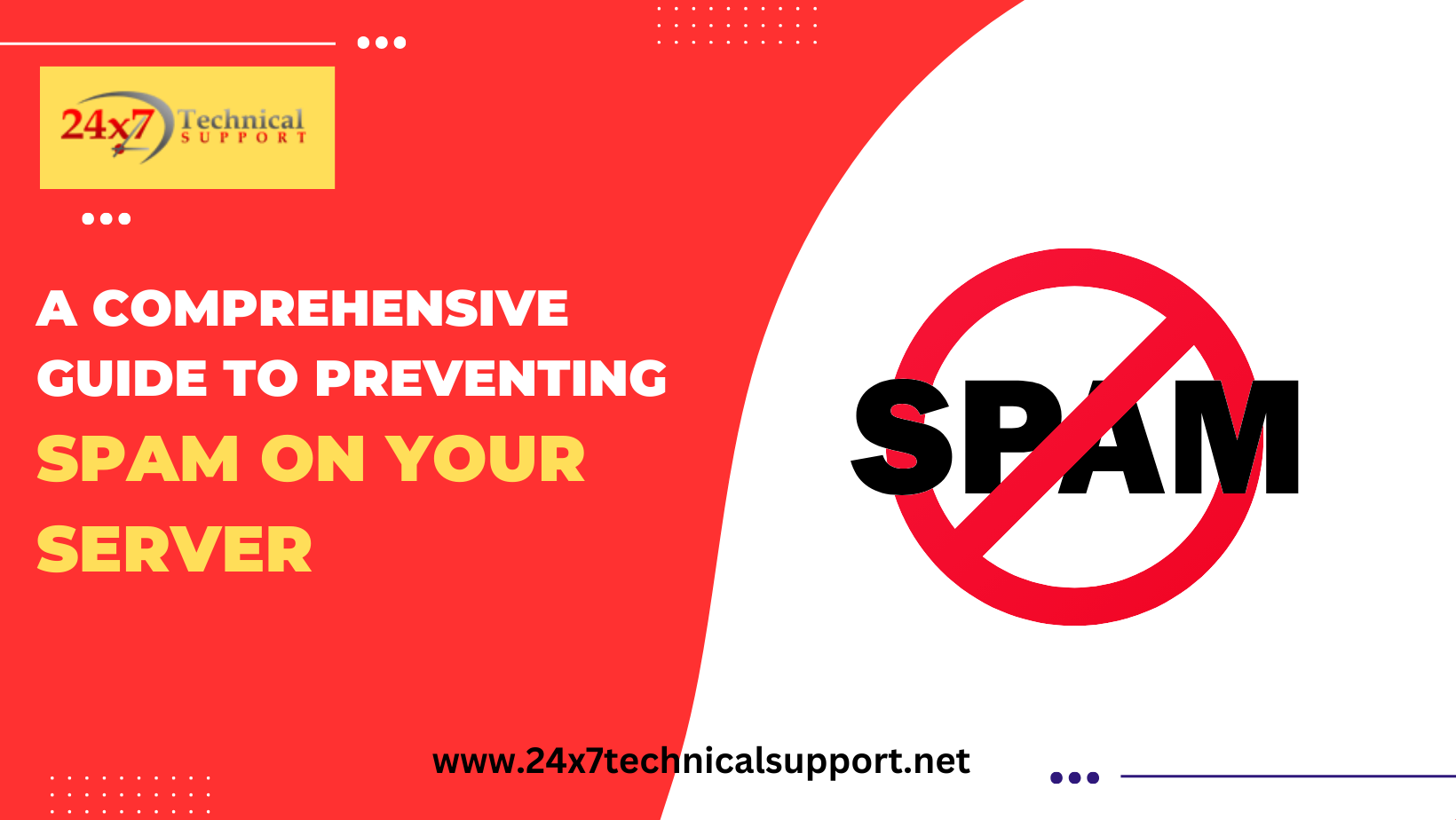
Spam has become an unwelcome constant in the digital landscape. For server administrators, combating spam is a critical aspect of maintaining a secure and efficient server environment. In this comprehensive guide, we’ll explore effective strategies to prevent spam from infiltrating your server and causing disruptions.
Understanding the Impact of Spam
Types of Spam
There are various forms of spam, including email spam, comment spam, and even more insidious types like malware and phishing attacks. Each poses a unique threat to your server’s integrity.
Consequences of Server Spam
Allowing spam to go unchecked can lead to a range of problems, from reduced performance and bandwidth hogging to potential security breaches and compromised user data.
Implementing Robust Email Filters
Configuring Spam Filters
Configuring email filters is a crucial step in the fight against spam. Fine-tuning filter settings ensures that legitimate messages are delivered while unwanted content is blocked.
Whitelisting and Blacklisting
Utilizing whitelists for trusted senders and blacklists for known spammers provides an added layer of control over incoming messages.
CAPTCHA: An Effective Line of Defense
Integrating CAPTCHA into Your Server
CAPTCHA challenges effectively distinguish between human users and automated bots, preventing automated spam submissions.
Customizing CAPTCHA Settings
Tailoring CAPTCHA settings to your specific audience and user base enhances its effectiveness in thwarting spam attacks.
Regular Security Audits and Updates
Importance of Updates
Regularly updating server software and applications is crucial for patching vulnerabilities that spammers may exploit.
Conducting Security Audits
Periodic security audits identify potential weaknesses and provide an opportunity to fortify your server’s defenses.
User Education and Awareness
Recognizing Spam
Educating users on how to identify and report spam ensures that suspicious activity is promptly addressed.
Reporting Suspicious Activity
Establishing clear reporting procedures empowers users to play an active role in the server’s security.
Utilizing IP Reputation Services
How IP Reputation Works
IP reputation services analyze the reputation of incoming IP addresses, blocking those associated with known spam sources.
Implementing IP Reputation Checks
Integrating IP reputation checks into your server’s filtering process adds an extra layer of protection against spam.
Two-factor authentication (2FA)
Setting Up 2FA on Your Server
Enabling 2FA for server access significantly enhances login security by requiring a secondary authentication method.
Enhancing Login Security
Implementing 2FA protocols strengthens the authentication process, reducing the risk of unauthorized access.
Monitoring Server Logs
Analyzing Log Data for Anomalies
Regularly reviewing server logs allows for the early detection of unusual activity that may indicate a spam attack.
Setting Up Automated Alerts
Configuring automated alerts ensures that you’re promptly notified of any suspicious activity, enabling swift action.
Backup and Recovery Protocols
Importance of Backups
Regular backups safeguard critical data in the event of a spam-related incident or other unforeseen circumstances.
Creating a Recovery Plan
Having a clear recovery plan in place ensures that you can quickly restore normal server operation after an attack.
Secure Socket Layer (SSL) Certificates
Why SSL Certificates Matter
SSL certificates encrypt data transmissions, safeguarding sensitive information from interception.
Installing and Maintaining SSL Certificates
Proper installation and maintenance of SSL certificates are essential for maintaining a secure server environment.
Engaging a Managed Hosting Provider
Benefits of Managed Hosting
Managed hosting providers offer specialized expertise and resources for optimal server security and performance.
Choosing the Right Provider
Selecting a reputable managed hosting provider is a critical decision that directly impacts your server’s security and reliability.
Legal Measures to Combat Spam
Anti-Spam Legislation
Familiarize yourself with anti-spam laws and regulations to ensure compliance and take legal action against persistent spammers.
Reporting Spam Incidents
Know the proper channels for reporting spam incidents to the relevant authorities, contributing to the broader fight against spam.
Keeping Abreast of Emerging Threats
Staying Informed
Remaining vigilant about evolving spam tactics and emerging threats allows you to adapt your security measures accordingly.
Adapting Security Measures
Regularly reassess and update your server’s security protocols to stay ahead of new spamming techniques.
Conclusion
By implementing the strategies outlined in this comprehensive guide, you can fortify your server against spam attacks, ensuring a secure and efficient online environment for your users. Remember, vigilance and proactive measures are key to maintaining a spam-free server.